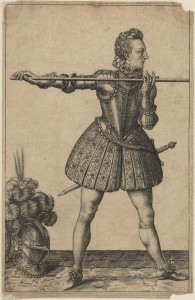IN CAMBRIDGE
Embodied Things (CRASSH)
Wednesday, 09 November 2016, Seminar Room SG1, Alison Richard Building
‘Passageways’
Jacqueline Nichols (Independent Artist), Daniel Jütte (CRASSH, NYU) – at Things
Middle English Graduate Seminar
Wednesday, 09 November 2016, 5:15, English Faculty Room SR24
Idolography: Saints and Idols in the Katherine Group vitae And Buried Treasure: In Search of the Old Norse Influence on Middle English Vocabulary
Johannes Wolf (Cambridge) and Richard Dance/ Brittany Schorn (Cambridge)
Early Modern British and Irish History
Wednesday, 9 November, 5.15pm, Graham Storey Room, Trinity Hall
David Coast (Bath Spa)
‘“The tears of the oppressed people of England”: grievance, complaint and the vox populi in early Stuart political culture’
IN LONDON
London Shakespeare Seminar
Monday, 7th November, 17.15 to 19.00 in the Senate Room, Senate House
This is a special event to commemorate the life and work of Professor Russ McDonald.
Speakers:
Dr. Hannah Crawforth (KCL) : ‘Shaping the Language: Words, Patterns, and the Traditions of Rhetoric’, in Shakespeare and the Arts of Language (Oxford: Oxford University Press, 2001), pp. 30-46.
Dr. Gillian Woods (Birkbeck) : ‘Planned Obsolescence or Working at the Words’, in Teaching Shakespeare: Passing It On, ed. By G. B. Shand (Oxford: Blackwell, 2009), pp. 27-42
Dr. Eric Langley (UCL) Shakespeare’s Late Style (Cambridge: Cambridge University Press, 2006), pp. 39-41 and 43-52.
A group discussion about the legacy of Russ’s work will follow the speakers’ presentations. To be added to the LSS distribution list and to receive copies of the extracts in advance contact Gemma Miller at shakespeare@kcl.ac.uk.
Please note that there will be drinks after the papers, and we have a table booked at Busaba Eathai Thai restaurant near Goodge Street station for those wishing to join us for dinner. Everybody is very welcome.
Twitter: @ldn_shakespeare
Email: shakespeare@kcl.ac.uk
Facebook: @londonshakespearecentre
London Renaissance Seminar
1:30 – 5 pm, Saturday 12 November 2016, Room 114, Birkbeck School of Arts, 43 Gordon Square
Ship and Nation in Early Modern England
Examining the connections between ships, literature and national identity speakers will explore the cultural paths between shipyard, theatre and pageant and the links between London’s maritime history and the city as a site of performance.
London Renaissance Seminar Contact: Sue Wiseman
Courtauld Early Modern Research Forum
Wednesday 9 November 2016, 5:00 pm – 6:30 pm
Research Forum Seminar Room, The Courtauld Institute of Art, Somerset House, Strand, London, WC2R 0RN
Caravaggio: Anatomist?
Prof. Frances Gage (State College at Buffolo, New York)
Caravaggio’s Death of the Virgin has been likened to a dissection scene in its presentation of a dead putrefying body, surrounded by onlookers. But could Caravaggio also have taken a genuine interest in anatomy and what knowledge of this field might he have had, if any? Given Caravaggio’s appropriation of the work of Michelangelo, who was acclaimed as an anatomist, to what extent may Caravaggio’s allusions to cutting and severing have served his claim to know the body as well as Michelangelo had?
Frances Gage is associate professor of Renaissance and Baroque art history at the State College at Buffalo, New York. She is a historian of sixteenth- and seventeenth-century Italian art and criticism, collecting, intellectual history and medicine. Her articles and essays have appeared in Renaissance Quarterly, Intellectual History Review and The Burlington Magazine and in numerous volumes including Display of Art in Roman Palaces, 1550-1750 and Caravaggio: Reflections and Refractions. She is the author of Painting as Medicine in Early Modern Rome: Giulio Mancini and the Efficacy of Art, published by Penn State University Press in 2016.
Society, Culture and Belief, 1500-1800 Seminar (IHR)
Thursday, 10 November, 17:30, John S Cohen Room N203, 2nd floor, IHR, North block, Senate House
Tawny Paul (University of Exeter)
Work culture, occupation and masculine identity in eighteenth-century Britain
It is well known that people in early modern Britain undertook multiple jobs in order to make a living. The occupational titles that men claimed in legal and institutional settings did not necessarily reflect the work that they undertook. While this relationship between title and work poses challenges for understanding men’s productive activities, it also opens up a number of questions related to identity. Work is often given a central place in accounts of masculine status. What happened, however, when men undertook multiple jobs? How did men account for their worth and status against plural employments? This paper draws on the diaries of three male artisans in the pre-industrial eighteenth century to investigate how men “accounted” for their work in social and cultural terms. It challenges some of the prevailing associations between occupation and masculinity, and investigates the interrelationship between labour, leisure, skill, income and status.
Tudor & Stuart History (IHR)
Monday, 7 November, 17:15, Wolfson Room NB01, Basement, IHR, North block, Senate House
Steven Ellis (NUI Galway)
‘Defending English ground: the crisis of lordship in early Tudor Northumberland’




